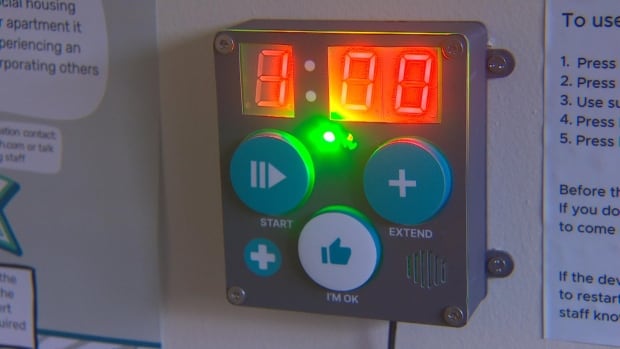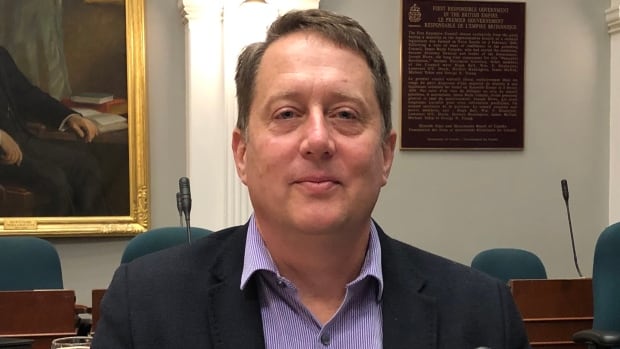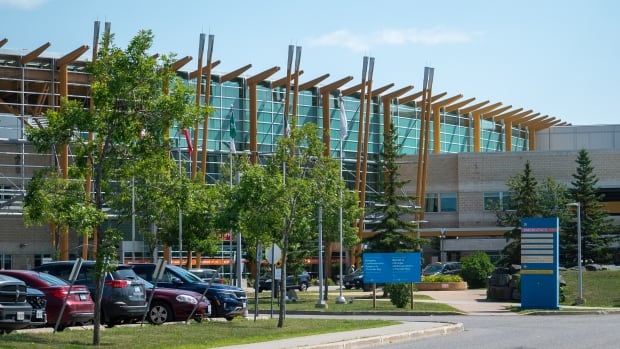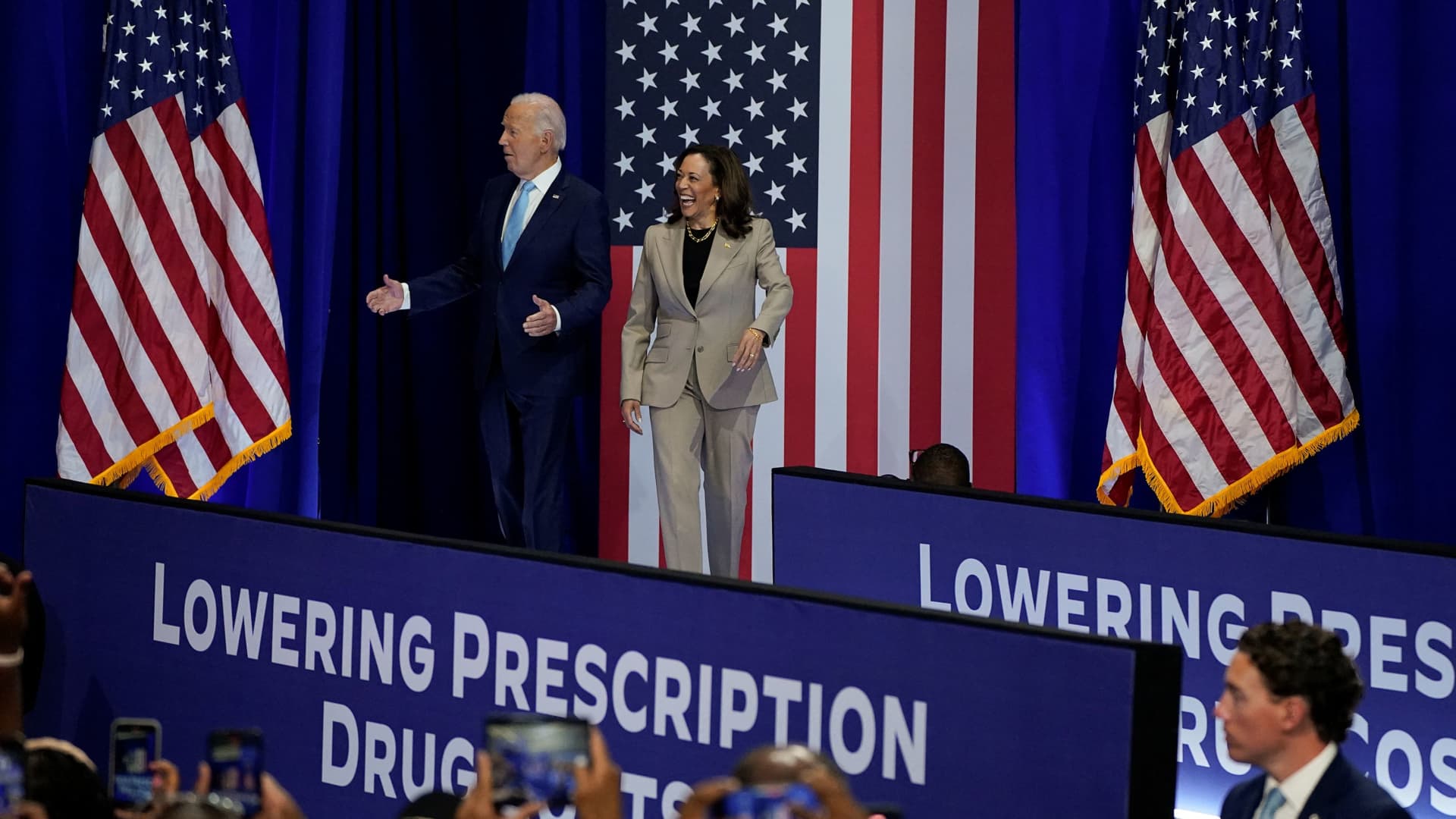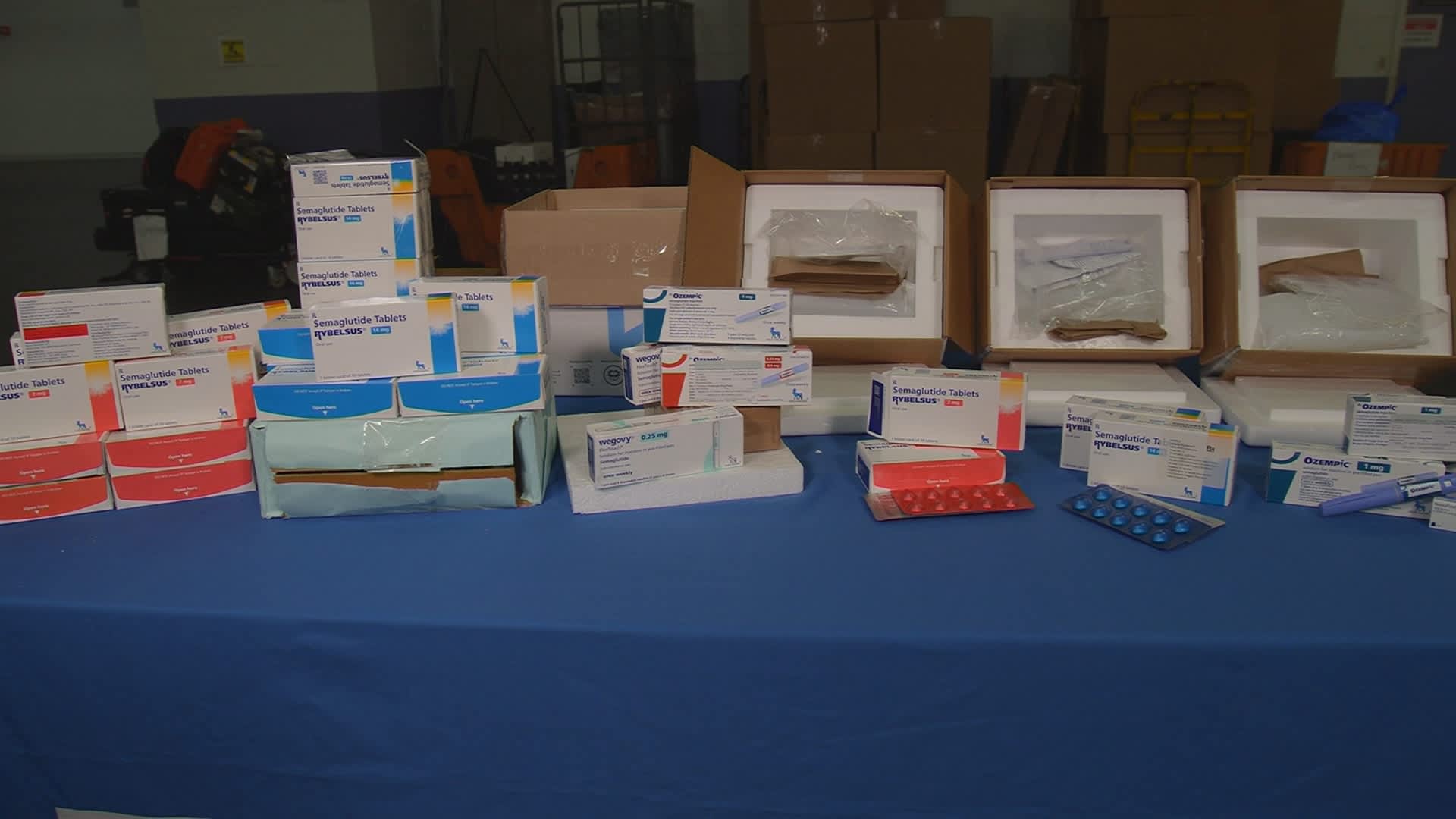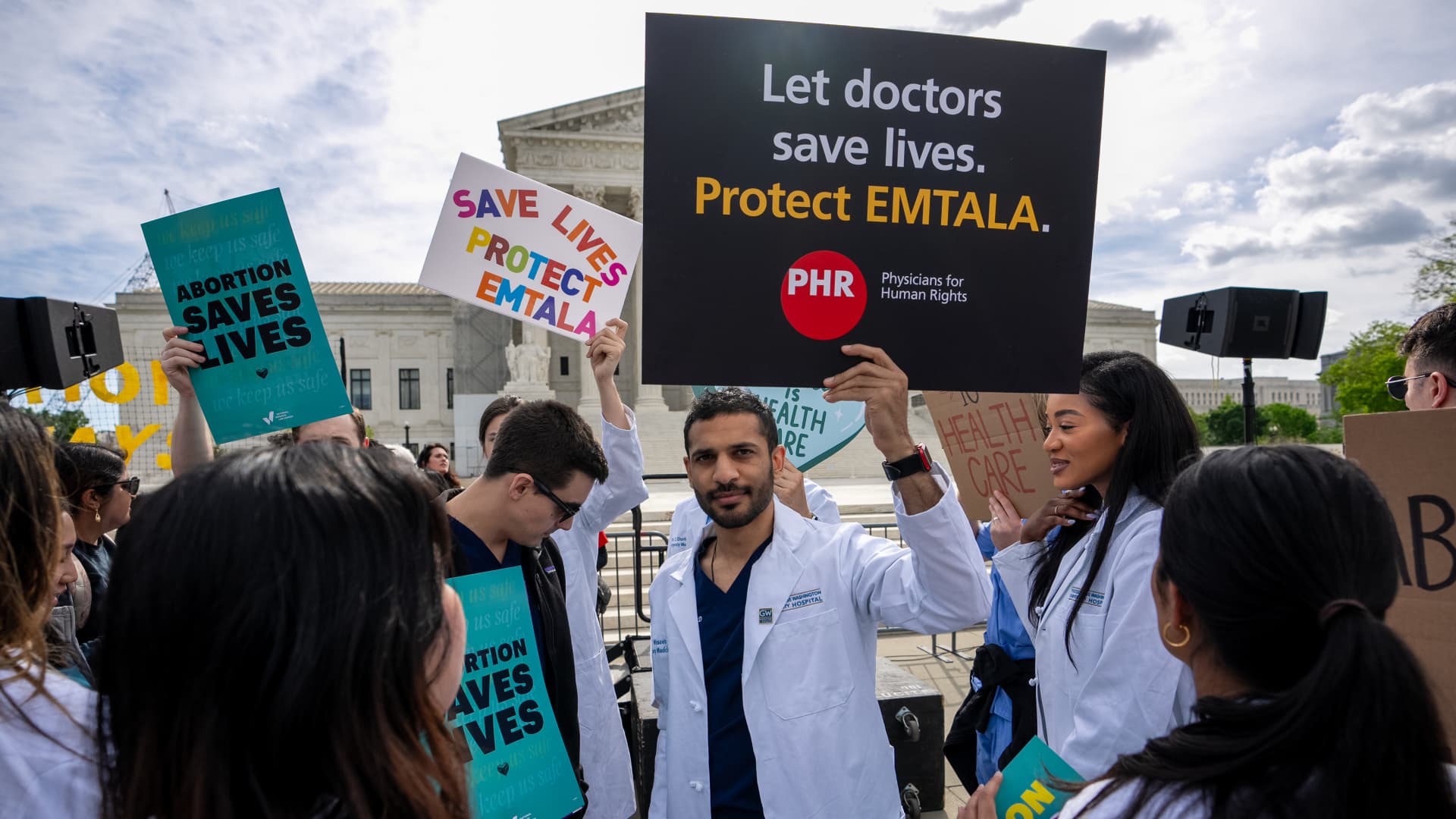The company behind a first-of-its-kind overdose prevention device says 15 people in British Columbia are alive today after LifeguardLite called for help when they couldn’t.
The LifeguardLite device alerts building staff if a resident doesn’t disable an alarm after using drugs, and can even call 911 directly if the alarm if help is needed.
The device — now installed in more than 1,000 units in supportive housing and shelters across the Lower Mainland and Victoria — has been used over 2,000 times, called 911 for help 308 times, and has helped save 15 lives in B.C. since last April, according to data Lifeguard Digital Health shared with CBC News.
That’s an average of more than one life saved per month, amid a toxic drug crisis killing an average of nearly seven per day in B.C., according to the province.
The company behind LifeguardLite says its device has helped save 15 lives since being installed in around 1,000 supportive housing, SRO and shelter units over the last year. As CBC’s Moira Wyton explains, it alerts building staff and calls 911 if the person using it doesn’t disable a timer before it goes off.
One of the patients who used LifeguardLite is a supportive housing resident who pushed the button when they woke up with severe chest pains and had difficulty breathing, said Jamie Sinclair, Lifeguard’s manager of supportive housing solutions.
“It turned out they actually were in cardiac arrest, so paramedics were dispatched immediately and they were able to be taken to the hospital,” she said in a Wednesday interview.
Due to privacy reasons, CBC News was not able to speak to the person.
Lifeguard says the data it reports is verified through B.C. Emergency Health Services (BCEHS). A BCEHS spokesperson acknowledged a CBC News request to confirm the figures on March 11 but did not provide a response before publication.
Catherine Roome, interim CEO of Atira Women’s Resource Society, says LifeguardLite devices have been installed in 151 rooms in the single-room occupancy (SRO) Hotel Canada in downtown Vancouver.
She says it has been used more than 200 times and has alerted staff and 911 to 14 emergency medical situations.

“So about seven per cent of the time that it’s been activated now for any reason — health, safety or wellness — it’s actually saved somebody’s life,” Roome said in a Thursday interview.
The device is also smoke detector and can send an alert when the temperature inside a room is too high, she added.
Roome said Atira is applying for funding from B.C. Housing to install the devices — which cost around $350 each — in more of its buildings.
Sinclair says LifeguardLite has been installed in buildings in Ontario, and New York City’s health department said it has plans to pilot the devices.
Lifeguard’s phone-based app, which launched in 2020, has helped save approximately 85 people who had overdosed alone, according to Sinclair. Both technologies have been developed with funding from B.C.’s provincial government and Health Canada.
‘We’re worth saving’
Sinclair says the results are encouraging and show the device helps keep residents safe even if they aren’t using drugs.
“We had a young lady who was being threatened in her room and was fearful for her safety, so she was able to start the device, and she got help right away,” she said.
“So of course the overdose piece, yes, but it’s being used in all different ways.”

Some experts and drug user advocates, including the Vancouver Area Network of Drug Users, have said the device, while helpful, is a Band-Aid solution that doesn’t address the toxicity of the drug supply or lack of supports for mental health and substance-use issues.
LifeguardLite is just one way to prevent people from dying until “there’s enough detox beds and there’s enough treatment beds that can deal with concurrent disorders,” said Sinclair, who used to run an SRO and is in recovery herself.
“I went to treatment more than once, and statistically it takes us more than once to get it,” said Sinclair. “We’re not just a statistic and we’re worth saving.”
More than 14,000 people in B.C. have died from toxic drugs since a public health emergency was declared in April 2016, and around a quarter of them died inside shelters, SROs, hotels or supportive housing, according to the B.C. Coroners Service.
Sixty-one per cent of those who died since the beginning of the COVID-19 pandemic were using alone, the service found in 2022.
